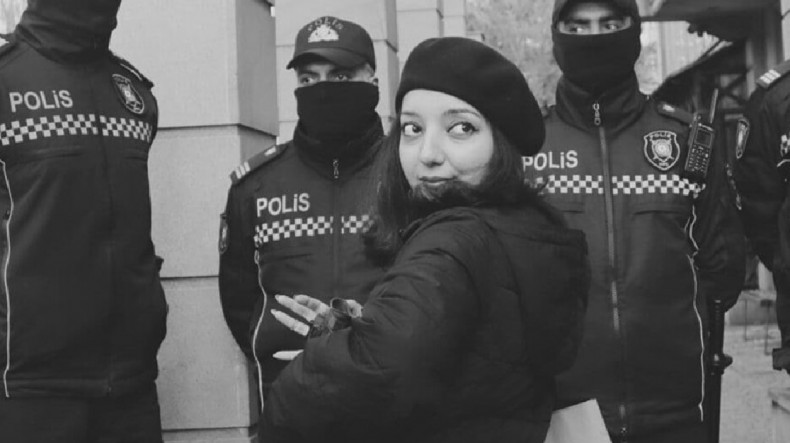
Number of political prisoners growing in Azerbaijan
According to a report by one of Azerbaijan’s human rights organizations dated December 12, 2024, there were 331 political prisoners in the country. The Union for the Freedom of Political Prisoners in Azerbaijan has published a new list of political prisoners in the country, which includes names of 357 individuals. According to it, these arrests are related to their political views and professional activities, the Geghard Foundation reports.
The individuals listed have been classified into 12 groups: “Journalists and Bloggers” – 27, “Human Rights Defenders” – 4, “Members of Opposition Parties and Civil Society” – 32, “Lifelong Prisoners” – 12, etc.
Since November 2023, a new wave of repression against independent media and civil society in Azerbaijan has begun, with more than 100 journalists, civil society representatives, human rights defenders, social and political activists, and religious figures arrested on various charges. Numerous international human rights organizations, as well as the U.S. State Department, have deemed these persecutions politically motivated and called on the Azerbaijani authorities to release those unjustly detained and drop the charges against them.
Under Ilham Aliyev, amendments to the laws on “Mass Media and Telecommunications” and “Information and Protection of Information” have led to an increase in pressure on the press. Several websites, including Azadliq Radiosu, Azadliq newspaper, Meydan TV, and Abzas Media, have been blocked in the country. On February 8, 2022, the “Media Law” was adopted, further restricting media and journalists’ access to information.
Ahead of the COP29 climate conference held in Baku, the Committee to Protect Journalists (CPJ) in New York condemned the extension of pre-trial detention for 11 journalists in Azerbaijan. “The continued incarceration of 11 journalists from Azerbaijan’s last remaining critical media outlets cynically ensures that the country’s boldest journalists will not be able to shine a light on corruption and rights abuses during the upcoming COP29. Azerbaijan’s international partners should use the media attention around the conference to step up calls to drop all charges and release the jailed journalists amid an intensifying media crackdown in the country,” said Gulnoza Said, CPJ’s Europe and Central Asia program coordinator. The committee cited the names of those arrested in the Abzas Media case, including Ulvi Hasanli, Sevinc Vagifkizi, Elnara Gasimova, Nargiz Absalamova, and others.
Throughout her career, Elnara Gasimova has collaborated with opposition media outlets such as Meydan TV, Mikroskop Media, Open Azerbaijan, and Abzas Media, as well as Voice of America. While fulfilling her journalistic duties, she has faced numerous threats and police violence from the Aliyev regime. On 4 August 2021, she was detained while covering a protest organised by feminist activists outside the Police Department of Khazar District.
Like other detained journalists from Abzas Media, she faces charges under Article 206.3.2 of the Criminal Code (smuggling by an organised group). Authorities allege that Gasimova and Abzas Media’s director Ulvi Hasanli, and others smuggled funds into Azerbaijan from foreign donor organisations. Gasimova denies these charges, maintaining that she and her colleagues are being persecuted for their investigative work, mainly focusing on corruption. She believes their arrests aim to silence independent journalism and halt further exposes.
Gasimova addressed an open letter to the public from Baku Detention Center telling about the injustices, physical and psychological abuse, and inhumane treatment faced by female prisoners in the facility.
“The management system of Baku Detention Center No. 1 (BDC) has many similarities with the governance style of Azerbaijan. Just as the rights of citizens are violated in the country, the rights of those held in the BDC are trampled upon. Legally deprived of their freedom, these individuals also face unlawful deprivations within the facility. In this detention center, which in many ways makes one forget that we are in the 21st century, poor conditions and rights violations prevail,” Gasimova wrote.
Speaking about prison ethics, she emphasized that “female prisoners are often subjected to discrimination. Many staff members communicate with them in a rude or demeaning manner. At times, inmates face psychological or physical violence, yet the staff members responsible for these actions are not held accountable and continue their work… In addition, the employees of the Baku Investigative Detention Center (BİT) use sticks and handcuffs more as a means of intimidation rather than to prevent the situations specified in the law (Article 45.2.1 and Article 45.2.2).
While enumerating the violated rights of imprisoned women, Gasimova notes that she and others are not provided with the items they are entitled to, and they are even unfamiliar with the “Internal Disciplinary Rules” of the detention facility, all phone calls of female prisoners are being wiretapped, and their right to telephone conversations is restricted. Prison staff prohibit calls to hotlines, the Human Rights Defender’s Office, the prosecutor’s office, or other institutions. The presumption of innocence of detainees is violated, as they are referred to as “criminals.” “These are just a few of the rights violations that women held in the Baku Investigative Detention Center face. When they protest the violations of their rights, they often hear this response from detention center staff: “Did I ask you to commit a crime and get arrested?” the journalist told.
Although several countries and numerous international human rights organizations continue to call on the Baku authorities to end political persecution and release imprisoned journalists and activists, Azerbaijan’s president continues to claim that “media freedom is ensured in Azerbaijan and that the arrests of journalists have been carried out in accordance with the law...”
It is undeniable that Gasimova and other political prisoners represent to the West the image of a “democratic Azerbaijan.”
Newsfeed
Videos






























